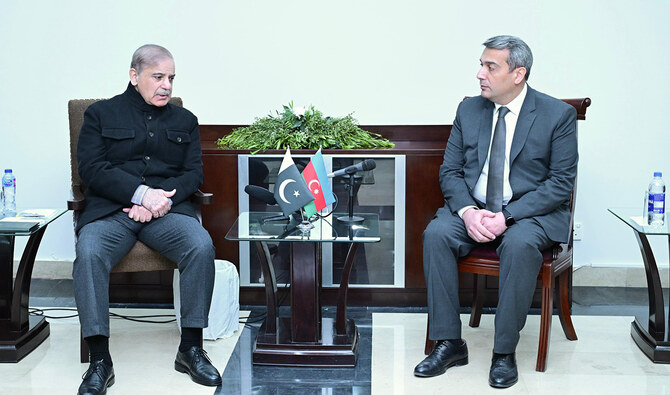ISLAMABAD: Pakistan rejected on Wednesday its placement on a US blacklist that includes countries accused of violating religious freedom, with its Ministry of Foreign Affairs describing Washington’s decision as “politically motivated.”
Pakistan was designated among a number of “countries of particular concern” in an annual congressional report, Secretary of State Mike Pompeo said on Tuesday. However, the penalties carried by the listing have been waived.
The Trump administration’s decision gives Washington leverage to apply pressure on Islamabad to end any discrimination on the basis of religion, said Dr. Hasan Askari-Rizvi, a geopolitical expert, while talking to Arab News, though he also pointed out the decision was primarily taken to put Pakistan under pressure and seek its cooperation in Afghanistan.
“They could have announced a waiver while downgrading Pakistan’s ranking, condemning the country for its treatment of minorities, but, instead, they waited to give the country a jolt.” It’s a tactic to “apply pressure, though not to the extent where the total relationship breaks down,” Rizvi added.
Earlier this year, Pompeo had put America’s estranged South Asian ally on a “special watch list for severe violations of religious freedom,” which constituted a step toward its placement on the blacklist.
Discussing the recent development with Arab News, a US Embassy spokesperson said, “Secretary Pompeo determined that the government of Pakistan had engaged in and tolerated ‘systematic, ongoing, and egregious violations of religious freedom,’” though it was determined in certain instances “that a waiver of the Presidential Action was required in the important national interest of the United States.”
The spokesperson added: “Among our key concerns are the continued use and abuse of blasphemy laws, as well as widespread abuses committed against the Ahmadiyya Muslim community and other religious minorities.”
However, Pakistan’s government functionaries have taken a different view of the situation. Earlier in the day, Human Rights Minister, Dr. Shireen Mazari, issued a statement, saying: “It was apparent that the US was using this as a brazen political tactic to pressure Pakistan to mitigate US failures in Afghanistan,” adding that “the timing of this move reflects this most clearly.”
Mazari said that targeting Pakistan while deliberately ignoring “India’s shrinking space for its religious minorities is absurd and unacceptable.”
Questioning the credentials and impartiality of the self-proclaimed jury involved in preparation of the blacklist, the foreign office said that Pakistan ensured “equal treatment for minorities.”
“Around 4 percent of our total population comprises of citizens belonging to Christian, Hindu, Buddhists and Sikh faiths” and “their enjoyment of human rights without any discrimination is the cardinal principle of the Constitution of Pakistan.”
However, Amir Rana, director of the Pak Institute for Peace Studies, argued that the US designation could negatively impact Pakistan’s image globally.
“If you look into the data of the Human Rights Commission of Pakistan, the atrocities against minorities have gone up compared to last year. Then the rise of TLP (Tehreek-e-Labbaik) threatened the religious freedom of some of these minorities,” Rana told Arab News.
Yet, the US decision to put Pakistan on the blacklist follows October’s landmark acquittal of Aasia Bibi, a Christian woman who remained on the death row for about eight years on blasphemy charges, by the Supreme Court of Pakistan. The top leaders of a political faction that violently reacted to the apex court’s verdict and instigated people against state functionaries and institutions were also apprehended by law enforcement agencies and slapped with terrorism and sedition charges.
Islamabad has also reaffirmed its commitment to work “with the international community to ensure that internationally agreed standards on religious freedom are observed in Pakistan and the broader region.”
Analyst and legal expert, Feisal Naqvi, who has worked on minority rights cases, explained that Pakistan already had ample laws to protect religious freedom for minorities.
“The only question is that of the implementation and enforcement” of those protection laws. He said that in recent years, public awareness of minority rights “has increased tremendously” and subsequently “protection will also increase.”


















